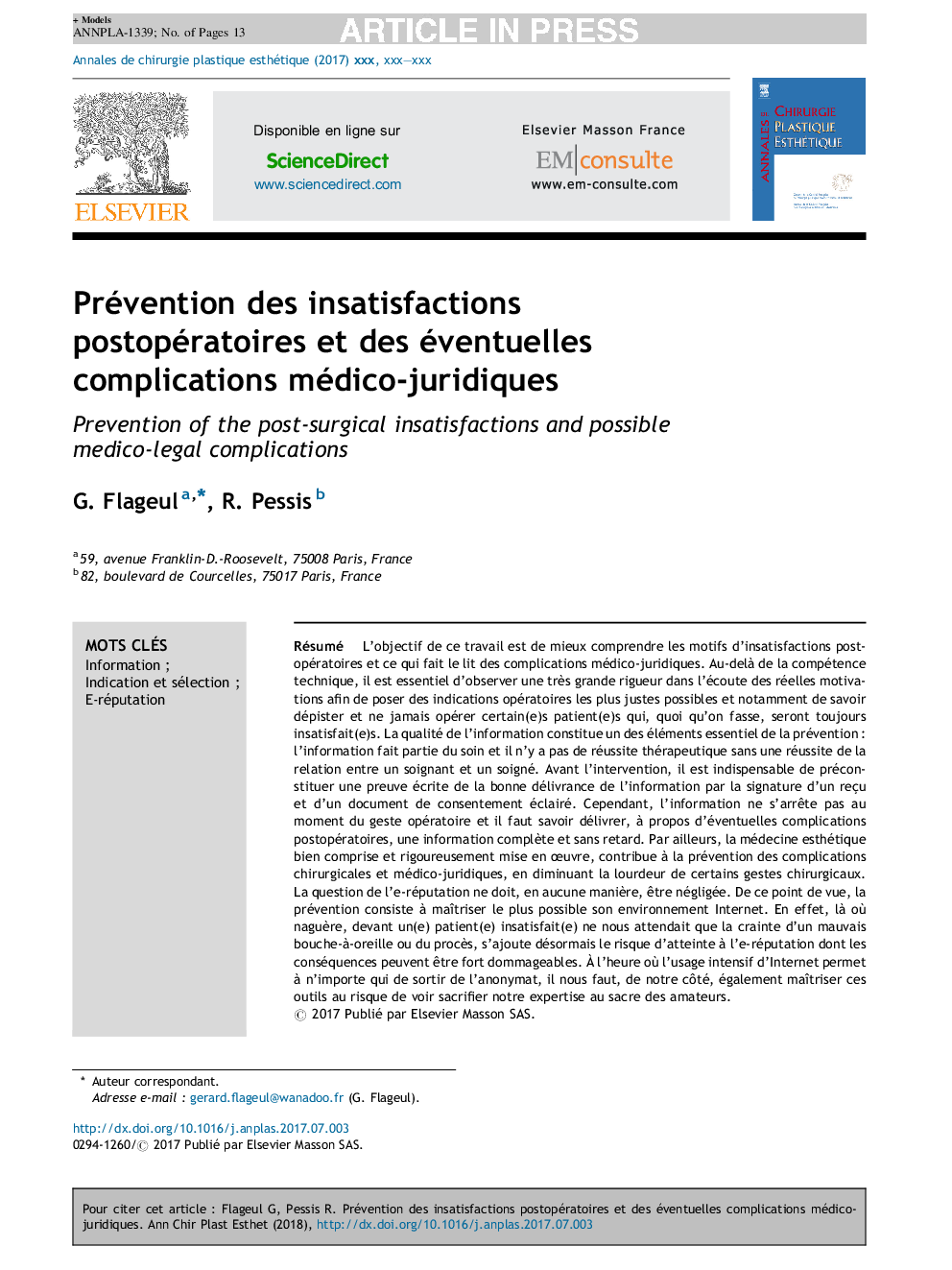| Article ID | Journal | Published Year | Pages | File Type |
|---|---|---|---|---|
| 5644499 | Annales de Chirurgie Plastique Esthétique | 2017 | 13 Pages |
Abstract
The purpose of this work is to better understand the reasons for post-surgical instability and what makes up the bed of medico-legal complications. Beyond technical competence, it is essential to observe a very high degree of rigor in listening to the real motivations in order to give the most accurate possible surgical indications and in particular to know to detect and never to operate certain patients who, whatever we do, will always be dissatisfied. The quality of information is one of the essential elements of prevention: information is part of the care and there is no therapeutic success without a successful relationship between a caregiver and a carereceiver. Before the surgery, it is essential to pre-establish written proof of the proper delivery of the information by signing a receipt and an informed consent document. However, the information does not stop at the time of the operative gesture and it is necessary to be able to provide complete and timely information about any post-surgical complications. Furthermore, aesthetic medicine is well understood and rigorously implemented, contributes to the prevention of surgical and medico-legal complications, reducing the heaviness of certain surgical gestures. The question of e-reputation should in no way be neglected. From this point of view, prevention consists in controlling as much as possible the Internet environment. Indeed, where, in the past, in the presence of a dissatisfied patient awaited us, the fear of word-of-mouth or trial is added to the risk of harm E-reputation whose implications can be very damaging. At a time when the intensive use of the Internet allows anyone to get out of anonymity, we must also control these tools at the risk of sacrificing our expertise at the coronation of amateurs.
Keywords
Related Topics
Health Sciences
Medicine and Dentistry
Dermatology
Authors
G. Flageul, R. Pessis,
